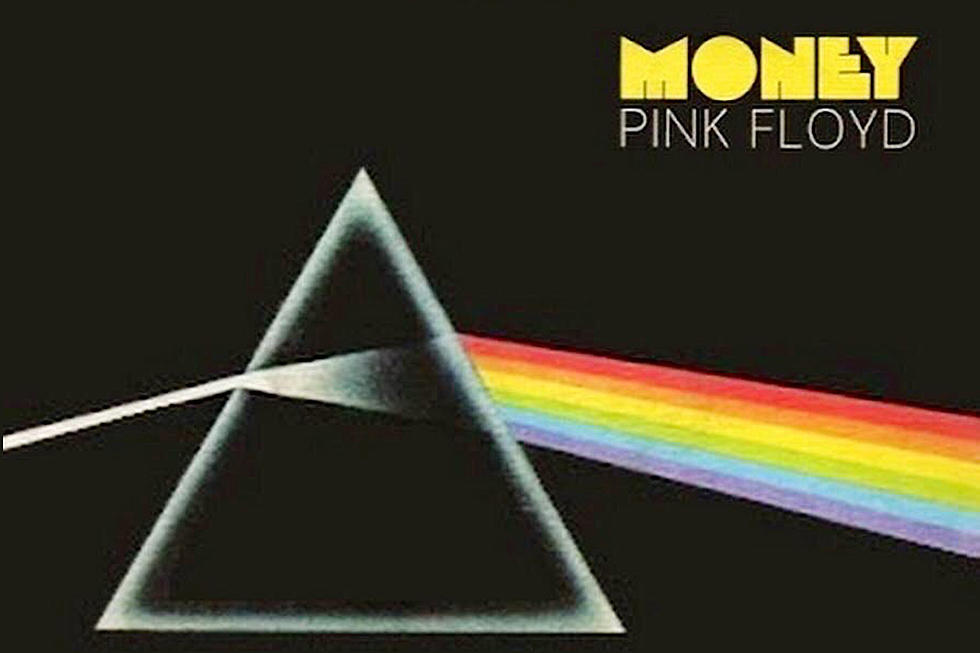
Top 10 Songs by Pink Floyd’s Syd Barrett
Before Pink Floyd conquered the world with prog- and narrative-heavy albums like The Dark Side of the Moon and The Wall, they were a psychedelic group led by a floppy-haired singer, songwriter and guitar player whose thirst for drugs often superseded his creative impulses.
Yet Syd Barrett undeniably led the band through their early years, anchoring their first singles and debut album with a musical palette as wide-reaching as his schizophrenic mind would allow. He became increasingly unreliable while recording Pink Floyd’s second album and left before the LP was released. His descent into mental illness, which was aided by his heavy LSD dosage and became the basis of Floyd’s 1975 opus Wish You Were Here, postponed the recording of his solo debut.
Barrett, who died at age 60 in 2006, released two albums before he turned away from music for good. Our list of the Top 10 Songs by Pink Floyd's Syd Barrett chronicles the best of his short career.
- 10
"The Scarecrow"
From: "See Emily Play" single (1967)Originally the B-side of "See Emily Play," "The Scarecrow" was the penultimate track on Pink Floyd’s debut album, The Piper at the Gates of Dawn. It’s not so much a song as it is a two-minute sound collage abetted by Barrett’s hazy musings on a sad, lonely scarecrow in a field. Fire up the bong!
- 9
"Effervescing Elephant"
From: 'Barrett' (1970)Animals are all over Barrett’s two solo albums. "Effervescing Elephant" features an entire menagerie parading through in less than two minutes. The final song on his last album almost finds Barrett with a splintering peace of mind – a place he resided, fractured and nearly invisible, until he died in 2006.
- 8
"Jugband Blues"
From: 'A Saucerful of Secrets' (1968)Barrett’s last Pink Floyd song is the only track on the band’s second album that he wrote. As the group began recording A Saucerful of Secrets, Barrett started to crack, and his bandmates began pushing him out. "Jugband Blues" is a critical assessment of the situation and a survey of his fracturing mind coming apart at the seams.
- 7
"Gigolo Aunt"
From: 'Barrett' (1970)Even though he left Pink Floyd in 1968, Barrett remained close with his former bandmates. David Gilmour (who joined the group as an onstage fill-in for the increasingly undependable Barrett) produced Barrett’s second solo album, which includes backing by Floyd keyboardist Richard Wright. "Gigolo Aunt" is side two’s standout opening cut.
- 6
"Bike"
From: 'The Piper at the Gates of Dawn' (1967)The closing song on Floyd’s debut is filled with typical Barrett whimsy, including appearances by a homeless mouse, various gingerbread men and a borrowed bicycle pimped out with a bell and basket. It all falls together at the end with runaway tape loops, a group laugh track and enough piled-on studio tweaks to fuel your next LSD trip.
- 5
"Lucifer Sam"
From: 'The Piper at the Gates of Dawn' (1967)One of Pink Floyd’s most popular cuts from their psychedelic era features all kinds of menacing moodiness, starting with an echo-drenched guitar riff that falls someplace between James Bond and hell. Barrett is unclear about who "Lucifer Sam" refers to (a cat? A girlfriend? His dealer?). The sonic debris that swirls around him feeds on the obscurity.
- 4
"Octopus"
From: 'The Madcap Laughs' (1970)"Octopus," under a different title, was one of Barrett's first songs after leaving Pink Floyd, though his psychiatric problems and drug abuse delayed the recording of his first solo album. Barrett’s only solo single preceded the release of The Madcap Laughs by a couple of months and was a clear indication that his head was a very weird place to reside in as the ‘60s ended.
- 3
"Arnold Layne"
From: Single (1967)Pink Floyd’s first single sounds nothing like the galaxy-hopping mind warps found on later classics like The Dark Side of the Moon and Wish You Were Here. Very British, very wry and revealing traces of the psychedelic freak-outs that would consume Barrett, "Arnold Layne" defined the frontman and the band's earliest stages.
- 2
"Astronomy Domine"
From: 'The Piper at the Gates of Dawn' (1967)The opening track of Pink Floyd’s debut name-checks the planets as the band’s instruments cascade over the rhythm like falling stars. And just like outer space, "Astronomy Domine" offers plenty of room for the group to roam. No wonder the song remained a popular part of the band’s live shows even after Barrett left. Gilmour has even included it in his solo concerts. It’s like a journey through the universe hosted by an artist who regularly took trips across it from the relative safety of his mind.
- 1
"See Emily Play"
From: 1967 singleThe second single by Pink Floyd has been cited by several people, including Gilmour, as the moment when Barrett’s creeping mental illness collided with his frequent drug use. Whatever the case, "See Emily Play" marks the group’s first brush with a pop-leaning chorus. It was a brief encounter: The song was quickly dropped from concert set lists as Barrett and the band explored trippier sounds.
More From Ultimate Classic Rock









